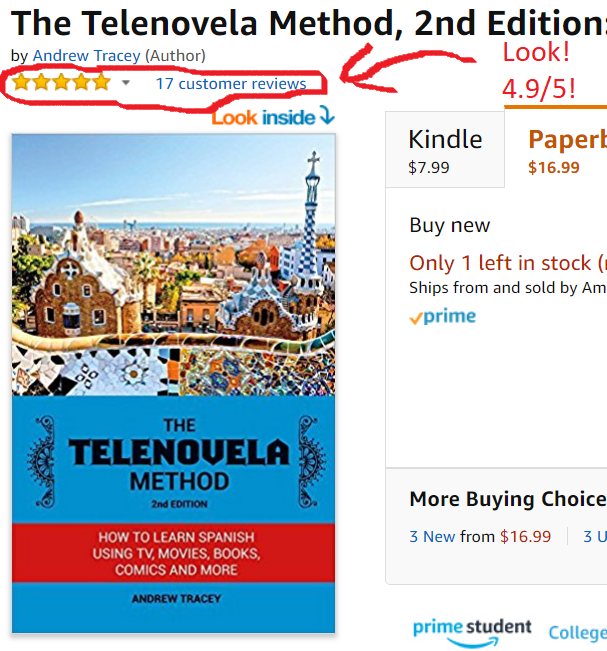This is just going to be a very brief post where I explain my current preference for Spanish-language news as a source of material to learn Spanish from. It applies more to those at an intermediate or higher (B1 and up I’d say) than to beginners, though now that I think of it there are news shows that cater to beginning Spanish learners and children (same thing for our purposes since the end result is the same, see my post here on why you should use kids’ stuff) and this applies to them, too.
-
- They speak well, there’s almost no risk that you’ll learn something, that you’ll pick up some habit, which you’ll later wish you hadn’t (poor grammar, low-class slang, profanity, etc.). What I mean is that the Spanish they use is at a somewhat higher-than-average level but, since it’s intended for an audience of millions of average people, it’s not abnormal, outdated, or overly stiff or formal. It’s normal, everyday speech, but it’s the everyday speech of educated, normal people who choose their words carefully (because they’re on live TV, haha). They’re well-spoken and if you copy them, you will be too.
- They talk about current events in that country and region which gives you something to talk about with any native speakers from that country you may encounter in online language exchanges or if you go to the country in question.
- Many language-learners (me included) are fascinated by other cultures and that’s a large part of the reason we learn foreign languages, we see them as a means to the end of learning about other cultures and peoples, and being able to communicate with them. Watching the news from a country you’re interested in will give you significant insight into their culture: what they value (what do they talk about the most? what seems to concern them? what do they get upset over?), where their interests lie, their holidays and festivals and what that says about them, how their government works, how well it works (is there much talk of corruption? many resignations and jailings of corrupt officials?), hints as to their history (inevitably comes up around holidays and festivals, which tend to have historical reasons for their existence), and on and on and on. Again, if you ever travel there you’ll have a lot more insight into how things work and why, how the people behave there and why, plus you’ll be able to communicate and bond with the natives a lot better if it’s obvious you understand them and their culture to at least some degree.
That’s it! Told you it’d be short. If you’re interested in doing this check out the following:
Fantastic Source of Free Online Spanish Videos (some with subtitles!): RTVE.es
Learn Spanish from the News #1: Common Political Terms in Spain (there will be more of these! this is a series I’m doing, be sure to subscribe via email below or RSS in the upper right to know when I publish new posts).
I learned to speak conversational Spanish in six months using TV shows, movies, and even comics: I then wrote a book on how you can, too
I have a whole method and a book I wrote about it called The Telenovela Method where I teach you how to learn Spanish from popular media like TV shows, movies, music, books, etc. that you can all find online for free. It was the #1 new release in the Spanish Language Instruction section on Amazon for nearly a month after it came out and currently has 17 reviews there with a 4.9/5 stars average. It's available for $7.99-$9.99 for the e-book version depending on who you buy it from (Kindle version on Amazon is now $7.99) and $16.99 for the paperback (occasionally a bit cheaper, again, depending on who you buy it from).
It's currently available in both e-book and paperback from:
Cheers,
Andrew







